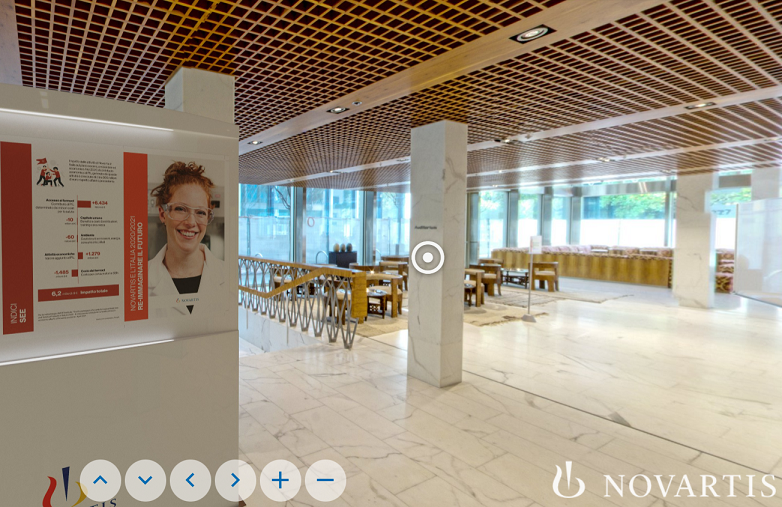Impact valuation places stakeholders at the heart of sustainable business
Novartis is a global medicines company based in Switzerland. Novartis products reach nearly 800 million people globally. About 108,000 people of more than 140 nationalities work at Novartis around the world. Novartis ESG targets include increasing access to medicines, improving health equity and achieving net-zero carbon emissions by 2040. More information about Novartis ESG practices is available here.
Novartis announced the renaming of Financial, Environmental and Social (FES) Impact Valuation to Social, Environmental and Economic (SEE) impact valuation. Why was it important to show the centrality of social impact to the business?
The Co-Creating Impact Summit 2020 was a successful event with important steps on our work of improving our impact on the society and the planet. It was the third event of this kind and for the first time open to external participants. At the summit, we announced the renaming of Financial, Environmental and Social (FES) Impact Valuation to Social, Environmental and Economic (SEE) impact valuation to better reflect the significance of social impact to the business while keeping the environment at the center. Our materiality assessment 2017 had made evident that the most material impact our company has is through the patients we serve, and our impact valuation results provided the evidence for that. Insights from the summit included that any company that has not yet started to embrace ESG and to embed it into its operations should press on to do so and that companies already embarked on the journey need to expand their impact-related capabilities to stay ahead of the curve. Have a look here for more highlights of the summit.
You recently led the Co-creating Impact Summit. Can you share with us some of the main takeaways of the summit?
We held the 4th Co-Creating Impact Summit on December 2, 2021 in close collaboration with our Impact Valuation Advisory Council chaired by John Elkington. The 2021 summit was a vibrant event full of positive energy, bringing together the different aspects of sustainability, ESG and long-term value creation from the point of view of major actors of the economy. The discussion has made crystal clear that the level of convergence is already significantly higher than generally appreciated. Particularly, the notion of considering all stakeholders and valuing the impact of business activities on them is generally accepted as the north-star of sustainability metrics. The validity of the ambition is evidenced by the WEF International Business Council metrics work and by the UN efforts to make the SDGs more practically relevant. Shortly after the summit, the G7 Impact Taskforce released their reports, underpinning the ambition with guidelines for industry and financial market players.
The Summit highlighted the role of Impact Valuation. Can you explain how Impact Valuation differs from sustainability reporting as an approach?
Impact Valuation measures what matters to a broad range of stakeholders. It offers a consistent, encompassing set of metrics that can support strategic and operational decision-making as well as stakeholder engagement. Sustainability reporting has recently gotten under pressure as it failed to direct investments and actions towards measurable improvements.
How do you use Impact Valuation to examine your value across your supply chain?
Thanks to Impact Valuation, we have transparency of key social, environmental and economic impact across our full supply chain. This transparency has allowed us to better understand our risk exposures globally and per sector.
Do you think investors are seeking out new business models that have a social impact?
Some investors certainly do! Social impact investing has increased from tiny to a considerable market size of USD 715 billion over the past view years. Clearly, many investors are now making a point in seeking to understand the social and environmental impact of their portfolio of assets, or with respect to the UN SDGs. The social impact can be delivered through new business models, but equally through more established business models.
In your opinion, can inclusive businesses provide an alternative for investors because their social impact is part of the business model?
As the first company in our industry, Novartis launched a sustainability linked bond over EUR 1.85 billion in September 2020 whereby bondholders are entitled to receive a higher amount of interest if Novartis fails to meet its targets for expanding access to its innovative medicines. This is a testimony to how serious we are with our ambitions to improve access to medicines, delivered through new business models of our Global Health organization. The bond was a success – proving that investors do indeed care about the social impact of their investments. For decades, Novartis has worked to improve access to medicines and tackle global health challenges. The sustainability linked bond is another important step on our journey to integrate ESG into the core of our business. So, full-heartedly, yes – business can provide social impact driven investment decisions.
As the number of ESG and climate-themed funds has increased, so too have concerns about “greenwashing” and transparency. How important is measuring impact to mitigating “ESG-washing”or “greenwashing”?
Greenwashing and ESG-washing are serious concerns as the concepts have so far failed to deliver the hoped-for positive change for the world. It is paramount that these failures are not repeated by impact-washing – calling “impact” every activity that feels or sounds good. For impact to drive real change, rather than new rounds of box-ticking, we need a parallel revolution in impact valuation. Sir Ronald Cohen argues in his book “Impact” that “the world must change, but we cannot change it by throwing money at old ideas that no longer work. We must adjust our approach. To change the world, we must change how we do business, starting with where and how we invest our money.” His “impact revolution” consists in enhancing the old idea of risks and returns by impact. If investments and businesses are managed considering impact, business can become a force for the good.
